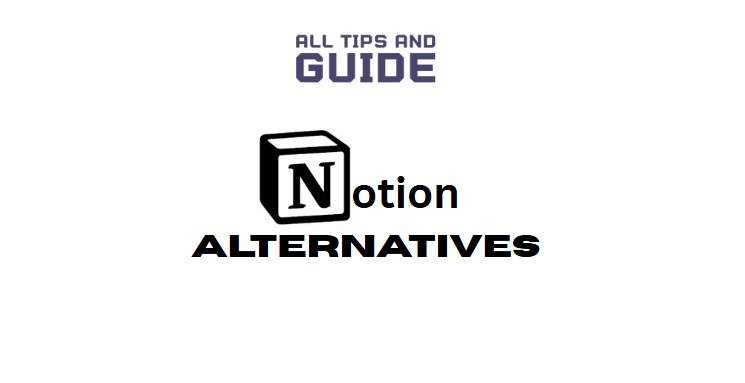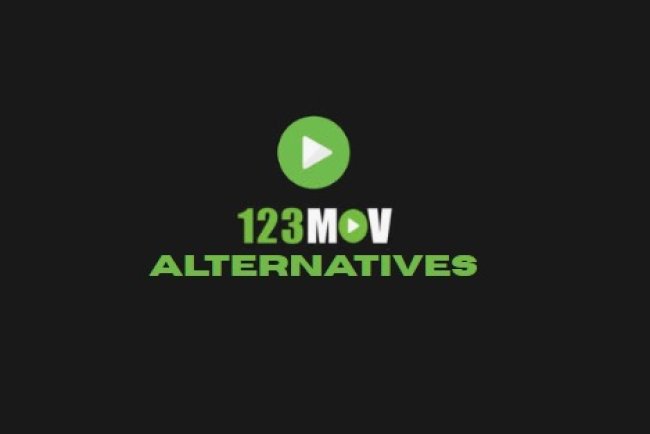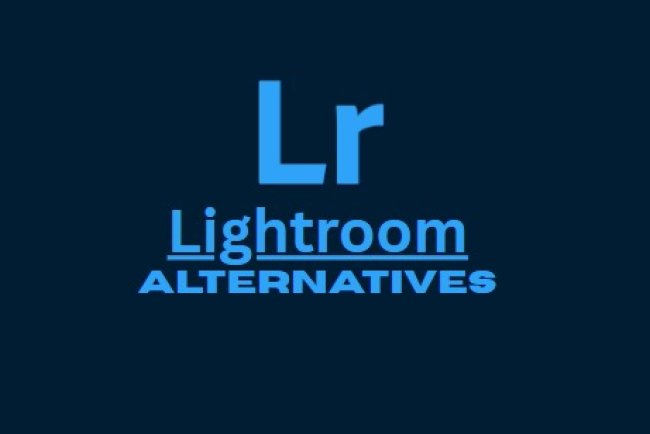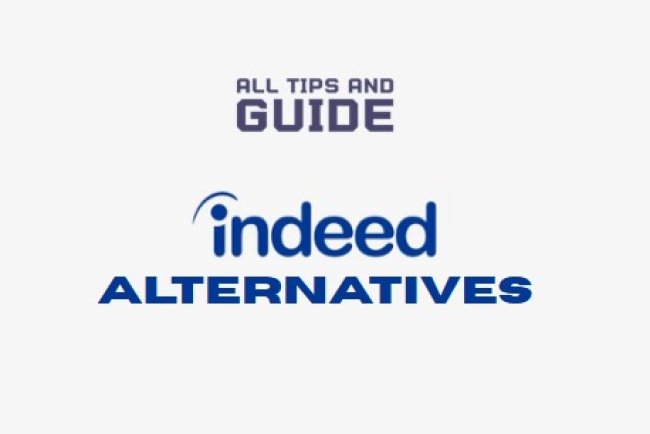11 Notion Alternatives That'll Boost Your Productivity in 2025
Notion not quite right? Discover 11 top Notion alternatives for 2025 that will boost your productivity, manage projects, & help you get more done.

Look, I get it.
Everyone's obsessed with Notion these days.
And honestly?
I can see why. Notion is an amazing all-in-one workspace where you can write notes, manage projects, create databases, & basically organize your every single thing. It's flexible, powerful, & lets you customize everything to work exactly how your brain thinks.
But here's the thing.
Notion isn't perfect.
Maybe it's too complicated for what you need. Maybe it's too expensive. Or maybe you just want something that works offline without having to depend on the internet 24/7.
Whatever your reason for looking beyond Notion, I've got you covered.
11 Best Notion alternatives
I've spent an ample amount of time testing out different productivity tools, project management platforms, & note-taking apps to find the ones that deliver on their promises.
And today?
I'm sharing 11 Notion alternatives that can help you get more done, stay organized, and maybe even save some money.
Whether you're a student on a tight budget, a freelancer juggling multiple clients, or part of a team that needs something simple & effective, there's something here for you.
So let's dive in!
-
Monday
-
Asana
-
Coda
-
Trello
-
Akiflow
-
Basecamp
-
ClickUp
-
Zoho
-
Todoist
-
Evernote
-
Airtable
1. Monday.com
If your team is all about visual organization, Monday.com might be your new best friend. This thing is gorgeous. Seriously, it makes project management look appealing instead of like some boring spreadsheet from 1995.
Screenshot Source: Monday.com
Key Features
-
Colorful dashboards
-
Kanban boards, Gantt charts, & calendars
-
Integrates with basically everything (Slack, Trello, Google Docs, you name it)
-
Handles repetitive things effectively
-
Built-in time tracker
Pros
-
Intuitive interface
-
Scales perfectly for startups or massive operations
-
Visual dashboards that make project management appealing
-
Extensive integrations simplify your workflow
Cons
-
Not as flexible as Notion when it comes to customization
-
A bit pricey if you are on a tight budget
-
Can feel expensive for small teams or startups
Pricing
Free plan for up to 2 users (perfect for testing it out). Paid plans start at $9 per user per month if you pay annually.
2. Asana.com
Asana knows exactly what it's doing when it comes to project management. If you like structure & clear task organization, this platform is for you.
Screenshot Source: Asana.com
Key Features
-
Multiple views so everyone can see projects the way they want
-
Task dependencies (because some things just can't happen until other things are done)
-
Over 300 integrations, including all the usual suspects
-
Superb reporting that tells you useful stuff
-
Availability of mobile apps
Pros
-
Straightforward interface (drag & drop works)
-
Free plan is genuinely useful
-
Built for collaboration without being overwhelming
-
Strong focus on task prioritization & team coordination
Cons
-
Fancy features like Gantt charts cost extra
-
Limited for general note-taking compared to Notion
-
Interface can feel complicated for newcomers
Pricing
Free for basic use. Paid plans start at $10.99 per user monthly (billed annually).
3. Coda
Here's where things get interesting…
Coda is like if a document, spreadsheet, & database had a baby. & that baby grew up to be really, really smart.
Screenshot Source: Coda.io
Key Features
-
Interactive documents that do things (not just sit there looking pretty)
-
Templates for everything (project management, wikis, customer management)
-
Plays nice with your existing tools
-
Real-time collaboration
-
Views that adapt to how you think
Pros
-
Super adaptable without being confusing
-
Generous free plan
-
Takes complex workflows & makes them simple
-
Low learning curve for document creation
Cons
-
Can get sluggish with big datasets or slow internet
-
Advanced features require opening your wallet
-
Less mature than competitors in database management
Pricing
Free plan includes unlimited documents. Team plan is available at $150/month.
By the way, if you want more alternatives so check it We also cover Coda Alternatives
4. Trello
Sometimes you just want something that works without a manual.
Trello gets that.
It's basically digital sticky notes that grew up & got organized. & honestly? Sometimes that's exactly what you need.
Screenshot Source: Trello.com
Key Features
-
Kanban boards
-
Drag-and-drop cards
-
Butler automation for the boring repetitive tasks
-
Integrations with Gmail, Slack, & other tools you already use
-
Works on everything - phone, tablet, computer
Pros
-
No need to watch tutorials to use Trello
-
Free plan covers most people's needs
-
Gold standard for Kanban-style organization
-
Simple & intuitive interface, perfect for beginners
Cons
-
Not built for complex project management
-
Custom fields cost money
-
Lacks powerful document editing like Notion
Pricing
Free for basic use (unlimited cards, up to 10 boards). Standard plan is $5 per user monthly (annual billing).
5. Akiflow.com
This one is different.
Akiflow is laser-focused on one thing: helping you manage your time & tasks like an expert. If you're the type who lives & dies by your calendar, pay attention to this platform.
Screenshot Source: Akiflow.com
Key Features
-
Calendar & task integration
-
Syncs with everything (Gmail, Slack, even Notion)
-
Kanban & list views for different ways of thinking
-
Available everywhere you need it
Pros
-
Excellent for personal productivity & time management
-
Integrates with tools you're already using
-
Clean interface that won't distract you
-
AI-powered task prioritization & scheduling
Cons
-
No free plan available
-
Limited project management features compared to full platforms
-
Higher price point may deter budget-conscious users
Pricing
Starts at $9.5 per user monthly.
6. Basecamp.com
Basecamp has one philosophy: keep it simple, stupid.
And you know what? Sometimes, that's exactly what teams need.
Screenshot Source: Basecamp.com
Key Features
-
To-do lists that don't overthink things
-
Message boards for team communication
-
Schedules that everyone can see
-
File sharing without the headaches
-
Client access when you need it
Pros
-
Super simple to use
-
Flat pricing works great for bigger teams
-
Cuts down on email chaos by centralizing communication
-
Client access feature for external collaboration
Cons
-
Limited customization compared to more flexible platforms
-
No free plan to test things out
-
Templates are pretty basic
Pricing
$15 per user monthly, or $299 monthly for unlimited users (annual billing).
7. Clickup.com
ClickUp wants to be your everything tool. And honestly? It might just pull it off. This platform is packed with features. Maybe too packed, depending on how you look at it.
Screenshot Source: Clickup.com
Key Features
-
Every view you could want (Kanban, Gantt, list, calendar)
-
Built-in time tracking
-
Goal setting & document collaboration
-
AI-powered automations
-
Custom dashboards & reporting
-
Integrations with basically everything
Pros
-
Incredibly customizable to fit various workflows
-
Free plan is actually feature-rich
-
Works for tiny teams & huge companies
-
Affordable pricing with free options
Cons
-
Free plan has storage & goal-setting limitations
-
New users can feel overwhelmed
-
Interface can be dense due to extensive features
Pricing
Free plan with two-factor authentication & collaborative docs features. Their unlimited plan starts at $7 per user monthly.
8. Zoho Projects
If you're already in the Zoho world, this is simple. Even if you're not, it's worth a look.
Screenshot Source: Zoho.com
Key Features
-
Task management with proper Gantt charts
-
Time tracking & invoicing in one place
-
Integrates with Zoho's suite plus third-party tools
-
Customizable workflows
-
Team collaboration tools
Pros
-
Good if you're using other Zoho products
-
Affordable pricing for small teams
-
Solid reporting & analytics features
-
Customizable workflows & templates
Cons
-
Interface feels dated compared to newer tools
-
Less flexible for non-project work
-
Limited appeal outside existing Zoho users
Pricing
Free plan for 2 projects. Premium starts at $4 per user monthly (annual billing).
9. Todoist.com
Sometimes, you don't need fancy features. You just need to keep track of what you need to do. That’s where Todoist has you covered.
Screenshot Source: Todoist.com
Key Features
-
Task creation with labels, priorities, & recurring options
-
Kanban boards & calendar views
-
Integrations with Google Calendar, Slack, Dropbox
-
Works on every device
-
Collaboration for shared tasks
Pros
-
Clean, intuitive interface
-
Free plan covers personal use nicely
-
Perfect for daily task management
-
Cross-platform availability ensures access everywhere
Cons
-
Limited for complex project management needs
-
Advanced features like reminders require payment
-
Not built for document management like Notion
Pricing
Free for up to 5 active projects. Pro plan is $4 per user monthly (annual billing).
10. Evernote.com
Evernote has been around forever in the internet years. And there's a reason it's still here.
Screenshot Source: Evernote.com
Key Features
-
Rich text editor with document scanning
-
Tagging & search that actually finds things
-
Offline access
-
Integrations with Google Drive, Slack, & Microsoft Teams
-
Task management & calendar sync
Pros
-
Excellent for note-taking & organization
-
Offline access is clutch when you need it
-
Cross-platform syncing works reliably
-
Rich text editor with document-scanning capabilities
Cons
-
Limited project management capabilities
-
Premium features get expensive quickly
-
Less collaborative than Notion for teamwork
Pricing
Free plan with basic features. Personal plan is $129.99 annually.
11. Airtable.com
Last but definitely not least. Airtable is the best part of a spreadsheet & a database combined, & it's even better than both.
Screenshot Source: Airtable.com
Key Features
-
Multiple views (grid, Kanban, calendar)
-
AI-powered organization & automations
-
Integrations with Slack, Gmail, Zapier
-
Real-time collaboration
-
Relational database that doesn't require a computer science degree
Pros
-
Intuitive interface
-
Free plan works for small projects
-
Incredibly customizable
Cons
-
Can slow down with large datasets
-
Fewer integrations than some competitors
-
Gets expensive for big teams
Pricing
Free plan with unlimited bases. The team plan starts at $20 per user monthly (annual billing).
So… Which One Should You Choose?
Here's the thing.
There's no perfect tool that works for everyone.
It all depends on what you need.
If you're a student or working solo: Try Todoist or the free versions of Coda or Asana.
If you're managing a team, Monday.com & ClickUp are solid choices, with Asana as a reliable middle ground.
If you need offline access, Evernote is your best bet.
If you want something simple, Trello or Basecamp will keep things straightforward.
If you're data-driven, Airtable is going to be your new obsession.
If you want the most bang for your buck, check out the free plans of Coda, Asana, & ClickUp.
The best advice I can give you?
Don't overthink it.
Pick one that seems like a good fit, try the free plan, & use it for a couple of weeks.
You'll know pretty quickly if it works for how your brain operates.
And remember, the best productivity tool is the one you'll actually use consistently. Not the one with the most features or the prettiest interface. The one that helps you get things done without getting in your way.
So pick one, commit to it for at least a month, & see what happens.
Your productivity will thank you.
That’s all for now. I'm Taimur Haider, & I’ll catch you next time.
-------------------------------------------------------------------------------------------------------------------
Hope you found this helpful! For more tips and guides, check out All Tips and Guide content.
What's Your Reaction?















